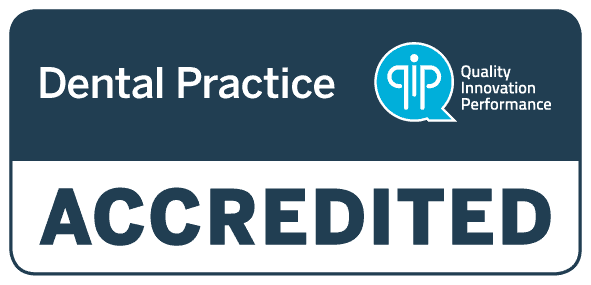‘Time is of the essence’– more so when it comes to our health and well-being.
Regular dental check-ups are an important part of taking care of our oral health, but how long do they really take?
In this article, we will discuss the process of a dental check-up, what to expect, and how long it typically takes.
We will also discuss preventive care and cleaning and how to monitor our oral health.
What Is a Dental Check-up?
A dental check-up is an important part of maintaining good oral health and is recommended by the Australian Dental Association (ADA) to be done at least every six months. During a dental check-up, the dentist will examine the teeth and surrounding oral structures, including the gums, to check for any signs of decay or disease.
During a check-up, the patient’s teeth and gums are inspected for signs of decay, gum disease, and any other oral issues. The dentist may also take X-rays to look for any problems that may not be visible during the inspection. A dental cleaning is also performed to remove any plaque and tartar buildup, and fluoride treatments may be given to help strengthen the teeth.
After the examination is complete, the dentist will discuss any treatments that may be necessary and create a treatment plan tailored to the patient’s individual needs.
Following regular dental check-ups and maintaining a mouth-healthy hygiene routine is essential for keeping your teeth and gums healthy and avoiding painful dental issues.
What to Expect from a Dental Check-up
At a routine appointment, a professional evaluation of oral health is provided during a dental checkup. During the exam, the dentist or hygienist will look for signs of tooth decay, gum disease, and oral cancer. They will also assess the patient’s oral hygiene and provide recommendations on how to improve it. Dental treatments may be recommended to address any issues that are found, including fillings, crowns, or root canals.
Regular checkups are important to help prevent tooth decay and other oral health issues. During the exam, the dentist may also take X-rays to detect any underlying problems that cannot be seen during an examination. Furthermore, the dentist may refer the patient to a specialist or another dental clinic if necessary.
Why Dental Check-ups Are Important
Regular dental checkups are essential for protecting and preserving oral health. They provide a comprehensive evaluation of a patient’s medical history and current dental concerns, helping ensure healthy teeth and gums. During a regular dental checkup, a dentist will diagnose and treat any oral health issues, including a deep cleaning if necessary. The dentist will also look for signs of decay, gum disease, or other issues that may be causing problems.
By attending regular dental checkups, patients can ensure they are taking the steps necessary to maintain a healthy smile. Dental checkups are also important for catching any dental problems early before they become serious and require more intensive treatment. Additionally, a dentist can provide payment plans to help make the treatment more affordable.
Overall, regular dental checkups are an important part of maintaining oral health. By attending these checkups, patients can ensure their teeth and gums stay healthy, catch any issues early, and receive affordable treatment. With regular dental checkups, patients can achieve and maintain a healthy smile.
Dental Check-up Process and Procedures
The dental check-up process typically involves a comprehensive evaluation of the patient’s medical history and present dental concerns. During the visit, the dentist will look for signs of dry mouth, tooth loss, and potential bacterial infections. The dentist will then perform an oral examination to check for signs of tartar buildup, surface stains, and any signs of gum disease. The dentist will also assess the patient’s overall oral health care needs and detect any potential issues, such as wisdom teeth infections or hidden issues.
To ensure optimal oral health, regular check-ups are important. The amount of time spent during a dental visit can vary depending on the individual’s needs. Generally, a regular visit can take between 30 minutes to 1 hour, while a more thorough visit will require more time. For individuals who have dental issues or require frequent visits, more time may be needed.
To ensure proper oral health, regular visits to the dentist are important. A regular visit should occur at least twice a year, while patients with dental issues may require more frequent visits. During each visit, the dentist will evaluate the patient’s oral health care needs and check for any potential issues. By having regular visits, any potential issues can be identified and addressed in a timely manner. In addition, regular visits help prevent the buildup of tartar, surface stains, and other signs of gum disease.
How Long Does a Dental Check-up Take?
On average, a comprehensive dental check-up may take between 30 minutes to 1 hour. During this process, a qualified health practitioner will first assess the health of the patient’s mouth. This assessment may involve the use of dental tools, such as an ultrasonic scaler, to detect any layers of bacteria that may have accumulated in the mouth. The practitioner may also check for any signs of oral thrush or other conditions that may increase the patient’s risk of gum disease. Pregnant women, in particular, may require more time for a full examination.
The practitioner may then provide regular cleaning services, such as polishing and scaling, to help maintain a healthy mouth. After the cleaning is completed, the practitioner may recommend additional treatments or follow-up visits, depending on the patient’s individual needs.
Preventive Care and Cleanings
In order to maintain a healthy smile, preventive care and cleanings are a necessary part of a dental check-up. During a routine check-up appointment, the dentist will inspect for any buildup of sticky layers, pieces of tartar, and plaque on the teeth and gums. During the teeth cleaning process, the dentist will also inspect the soft tissues for any signs of oral diseases. Routine cleanings and examinations are important to diagnose any possible dental issues and to determine what treatment options should be considered.
The following are five components of preventive care and cleanings:
- Sticky Layer: A thin film of bacteria that accumulates on the teeth and gums
- Pieces of Tartar: Hardened deposits of plaque that can occur on the teeth
- Soft Tissues: The gums and other oral structures that need to be inspected for signs of gum disease
- Oral Diseases: Any conditions that affect the mouth, such as cavities, gum disease, or tooth decay
- Routine Cleanings: Regularly scheduled teeth cleanings that help remove plaque and tartar buildup and prevent oral diseases.
Monitoring Your Oral Health
Monitoring oral health is essential for maintaining a healthy smile. Regular visits to the dentist are recommended, as they are the best way to prevent and detect potential health concerns. A dental checkup involves a comprehensive evaluation of all areas of the mouth, including the teeth, gums, tongue, and throat. The dentist will check for any cavities, signs of gum disease, and any other oral health issues that may be present. During a dental checkup, the dentist may also use special tools to screen for types of cancer or signs of yeast infection.
The dentist will also ask questions about a person’s health history and potential concerns. This helps to identify any potential health issues that may be present. The dentist may also recommend additional tests or treatments if any issues are found. For those who suffer from dental anxiety, the dentist may recommend relaxation techniques to help make the experience more comfortable.
It is important to maintain good oral hygiene in order to keep the mouth clean and healthy. This includes brushing and flossing regularly and eating a balanced diet. Doing so will help to prevent gum disease and other health diseases. By regularly monitoring your oral health, you will be better able to identify any potential issues and take steps to address them.
Key Takeaways
In conclusion, a dental check-up is an important part of maintaining oral health. The process and procedures of a dental check-up are designed to detect and address any potential issues and to provide preventive care and cleanings to ensure optimal oral health.
Generally, a dental check-up will take between 45 minutes to an hour, depending on the individual’s needs. Regular check-ups are essential for the upkeep of good oral health and can help to prevent serious health issues down the line.
Taking the time to visit a dentist and receive a check-up can make a world of difference in maintaining a healthy smile.
Our team of experienced and friendly dentists in Wollongong are committed to providing our patients with the highest quality of care and attention. We understand the importance of regular dental check-ups and are dedicated to helping you maintain a healthy and beautiful smile. So don’t wait any longer. Schedule your next check-up with Dentist 4 U today and start taking the necessary steps to protect your oral health!
We also have experienced dentists in Fairy Meadow offering children’s dentistry.



